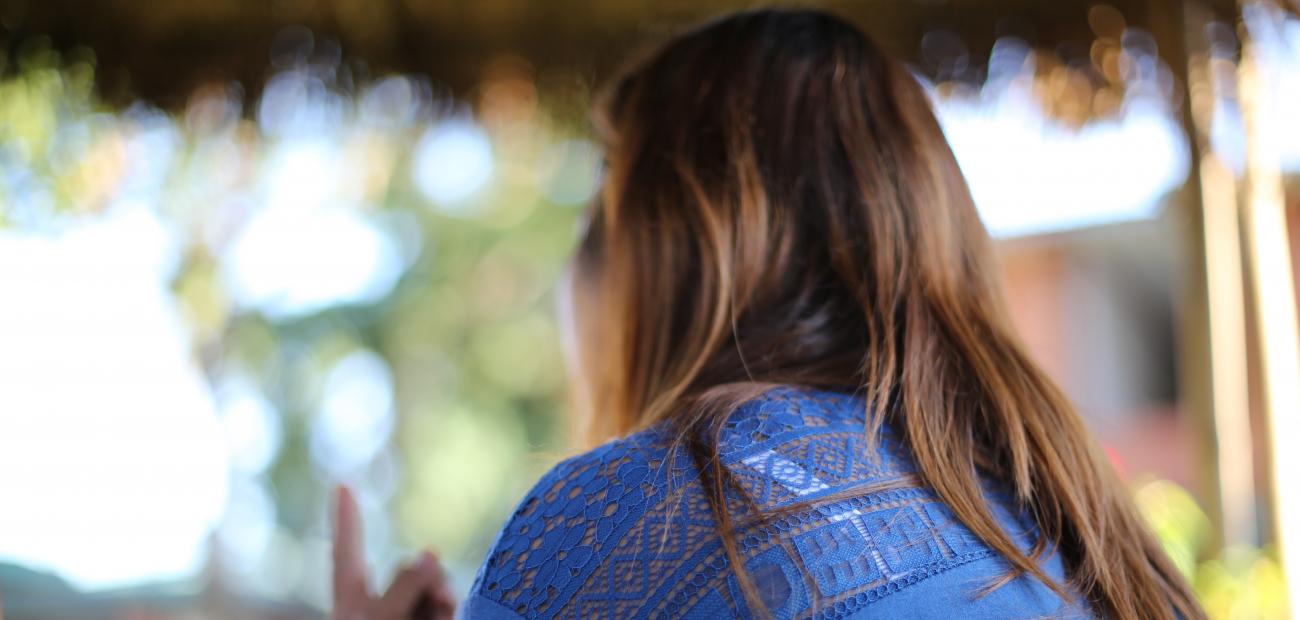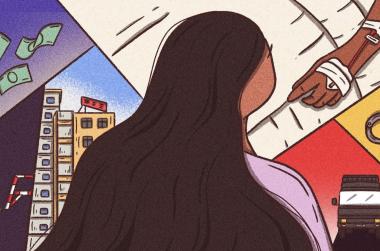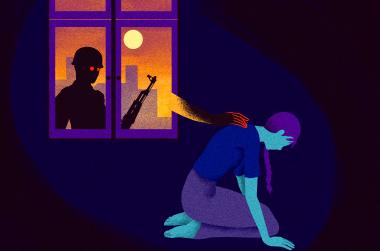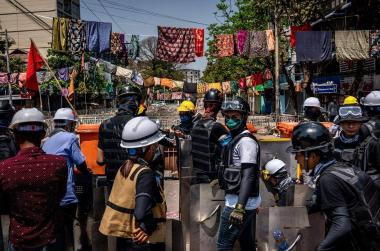Ah Hkawn is still in her thirties, but her story is one of many lives.
It is not perhaps a happy tale, though there are moments when the weight of life lifts a little, like clouds after a storm, and the sun shines clear.
And it may not be for those who are easily shocked, or who take their good fortune for granted and think it was earned.
But it is her story. And its hope and sorrow and violence and loss deserve to be heard as much as any other.
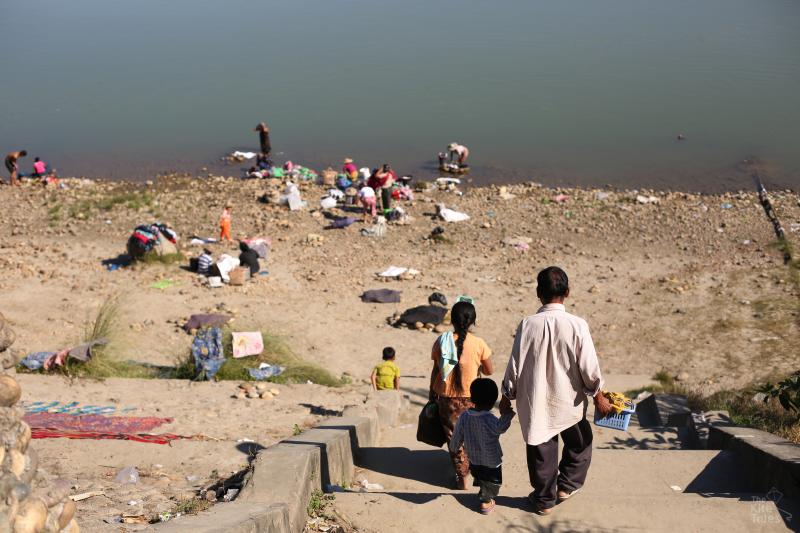
“Now that I’m a mother myself, I’ve learned to appreciate parents. When I was young I was very resentful of my mother for leaving us, because we suffered.
“My father was very bad even before they got married. He used to hit my mother. He’d cover her face with a shawl and beat her. When she could no longer bear that she escaped on her own, leaving us. They had seven children. I’m number three. My youngest brother was still very young, not even a year old.
“After that I grew up under the eyes of grandparents and uncles. I was devastated that my parents were not together, it badly affected me psychologically. I fell into bad company and no longer wanted to stay at school.
“I ran away to Hpakant (a notorious jade mining area in Kachin state) at a very young age, only 14 or 15. I was told my mother’s younger sister was there so I went looking for her. I had no money to pay for transport so I ended up going with an organisation for the blind. I helped them for about three months as they went from one mine to another, singing to raise funds.
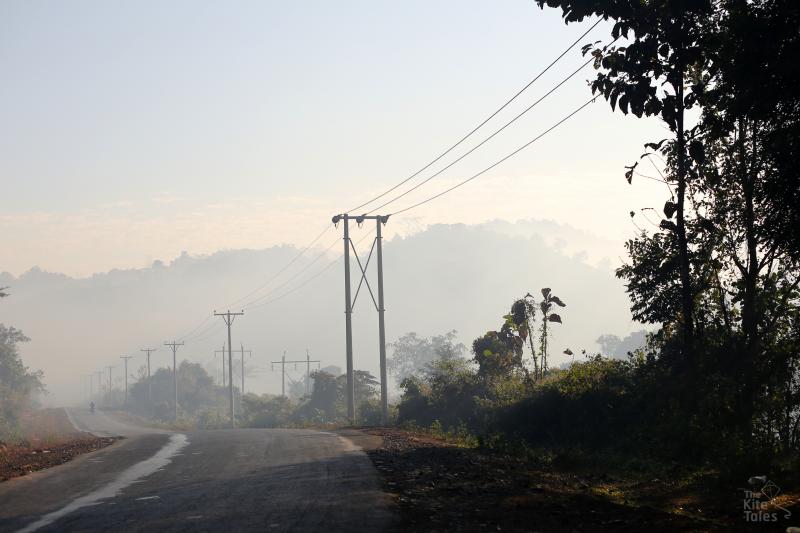
“Then I met my mother’s sister, so I stayed with her. But we fought and she kicked me out, so I moved in with another relative. She had a shop in Hpakant and I was pretty much a slave there. I worked in exchange for food for two years. That’s how I passed those years.”
Ah Hkawn met a much older man from her village who persuaded her to move back home and be his girlfriend.
“He was a bachelor and supported me. I was still very young. We thought of getting married, but that didn’t happen -- he left without a word. I took it very, very badly. It was like I was deranged.”
At 18 Ah Hkawn moved to Myitkyina, Kachin’s capital city, and fell in with a group of friends who liked going to the local karaoke bars. Virtually the only evening entertainment, the girls here sing -- and sometimes more -- for the mostly male patrons.
“I love singing so I tagged along. I had no clue. It’s not like I was paid for it. I just went along with the friends. I didn’t even know you could get paid for it. I was young and I was just drifting.
“I met my late husband then. There used to be a place that had these singing shows and I would go and sing. He would come to provide security and that’s how we met. He was also a lot older than me.
“I had a son and a daughter with him. I’d just turned 19. It was only after our son was born that he applied to get married. But the marriage was very blissful. I don’t think I could find another man like him again. He was very good to me.
“He was very good-looking, a volleyball player, had the look of an officer.
“When I think back, maybe he didn’t mean to marry me. Maybe he just wanted to have fun. He was a graduate, educated. I’m Kachin and I have relatives who had links with the Kachin Independence Army. It’s because of me that he didn’t become an officer.
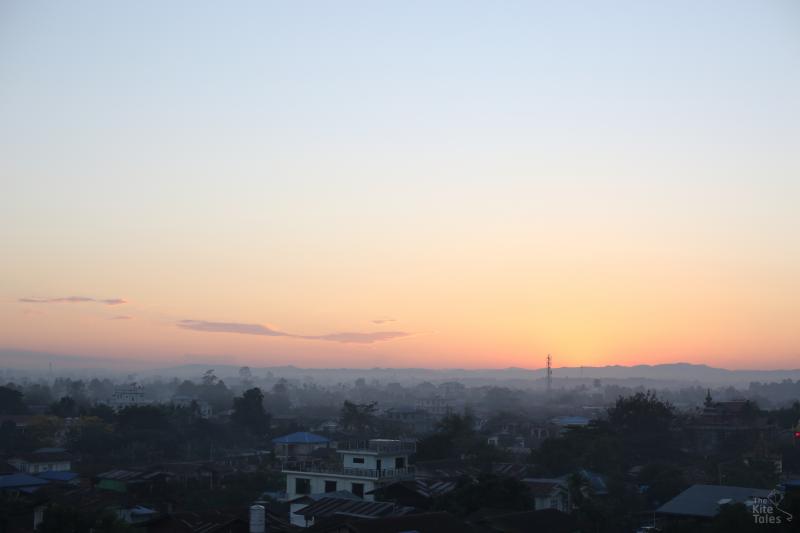
“My husband passed away after being tested HIV positive. He was looking well and fit, but we found out he had it in 2004.
“He became very ill, so we took him to the army hospital. At that time there was no such thing as counselling. They needed to test his blood, but couldn’t do it in Myitkyina — they had to send it to Mingalardon hospital (in Yangon). About a week after that, he got a call. Well the army got a call on the landline asking for the commander. The whole place found out he was positive. I was so shocked. We suffered a lot of discrimination after that. People would run away when they saw us coming.”
He died the next year.
“At that time, my daughter was 11 months old and my son was in first grade. For six whole years, I struggled alone. It was such hardship.
“I did all sorts of work. I washed people’s clothes, I worked on construction sites. I sold vegetables and groceries.
“Once I even tried to work as a cook. I was told I would get 70,000 kyats a month — a lot of money. I love cooking and I thought if there were any leftovers, we could eat them. I was so happy,” she says.
But the spectre of her husband’s illness haunted her. On her first day she was called over by a guest, a major from the airforce.
“I said, ‘Yes, Major’. He said, ‘I hear you have a disease. You don’t have to cook anymore. Here’s 4,000 for this morning’s work’. He sent me away with that money.
“I cried so hard I felt like I would pass out. There was no one I could talk to. There weren’t mobile phones then, just landlines. I went to this aid worker who is very understanding. I walked to her house bawling, I bawled at her house recounting what happened. I bawled all the way home too. I cried till the morning came.
“I went to work in a massage parlour after that. It was only later that I had sponsors and became a sex worker. Thinking back, I feel so ashamed of that period in my life. To tell you the truth, if the man was going to pay so I could look after my family, then I would be with them. I would have sex with men if it meant we could eat.
“I just told myself I had boyfriends. That’s what I thought it was. I had no idea I was working as a sex worker.
“My children don’t know about this.
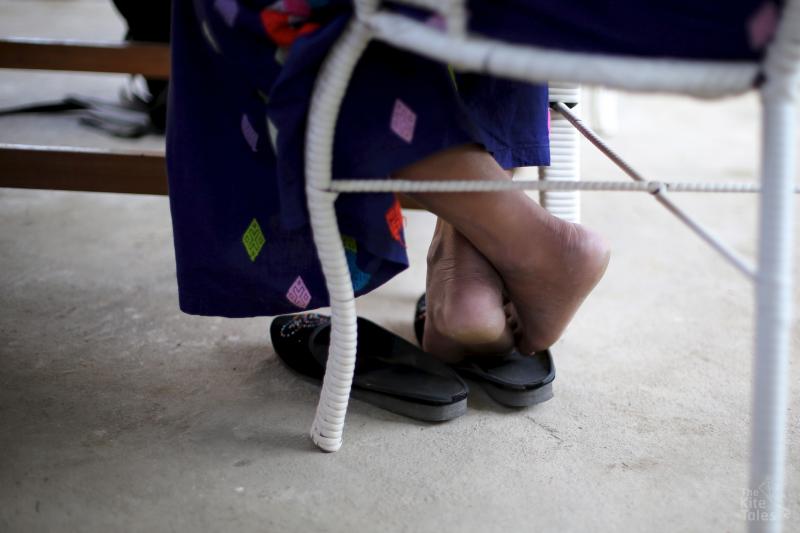
“I have no intention of going back to that life. I’m very ashamed.
“Six years ago an aid worker persuaded me to join their organisation. My life has changed a lot. I’m glad to have been able to help educate other sex workers by sharing my experience. There’s also a group of us who put together money to help some sex workers who are in trouble.
“A few months before I joined this non-governmental organisation, I re-married. A young boy from Mandalay whom I met in Hpakant when I was working at the massage parlour. He followed me and refused to go back, so we got married.
“He knows I’m HIV positive. We used condoms when we first got married although we no longer do. He gets tested every three months. And I take my medicine regularly. I will have to as long as I live. He’s quite understanding. He’s a lot younger though. More than 10 years.
“I didn’t tell my relatives straight away. I started by saying those with HIV can now live longer and how the infection happens, etc. Only after they understood and accepted that, then I told them. I was really worried about stigma, but it’s been very different to what I feared. Everyone has been very warm.
“My mother is still alive. She re-married and had another son and daughter. She’s living in the countryside now and we are in touch.
“After my parents split up, my dad became a drug addict and lost all his possessions. No more farmland. He lived a rough, careless life until he passed away. It’s been over 20 years since he died. His family was quite well-known and wealthy. We are the only ones who are poor.
“My kids are very good. I think they will continue to be good. I don’t want to tell them that I whored myself to feed them.
“I want both of them to become university graduates. Of course it all depends on their own karma. But I’ll try my best. That’s all I can give them.
“Today, I was asked about my 10-year goals. I said I don’t have my own house, we’re renting for 70,000 kyats a month. I don’t want to be very rich, I can be content with this life. I don’t like big houses or cars either. Just a neat wooden house with some land. If I get a home like that for my family, I would just have a little shop outside the house and focus on religion.”
* Ah Hkawn is a pseudonym and other details have been omitted to protect her identity
Interviewed January 2017

